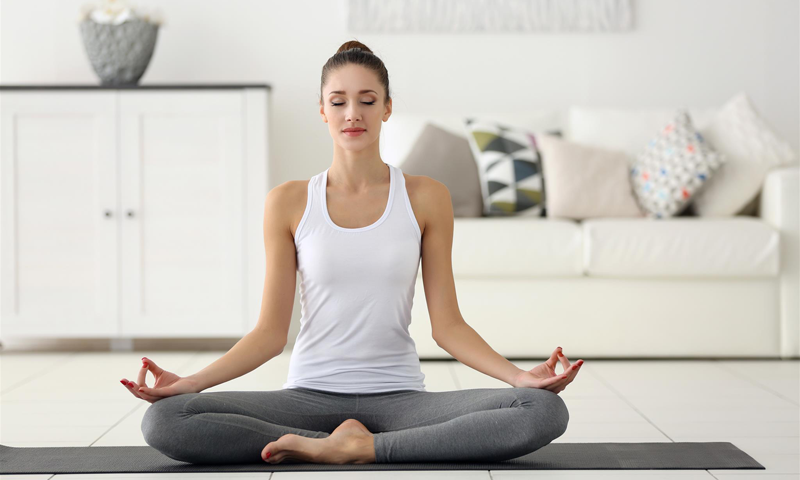Discover the transformative power of meditation with our guide on how to meditate. Reduce stress, boost immunity, and enhance self-awareness. Start now!
Meditation is a practice that has been around for centuries and has been proven to provide numerous benefits for the mind, body, and soul. It is a way to quiet the mind, reduce stress and anxiety, improve focus and concentration, and increase overall well-being. In this article, we will not only explore the benefits of meditation but also provide step-by-step instructions on how to meditate, so you can start experiencing the benefits for yourself.

Before we get started, let's first discuss why meditation is such an important practice. In today's fast-paced world, we are constantly bombarded with information, noise, and distractions. This can lead to feelings of overwhelm, anxiety, and stress. Meditation provides a way to slow down, calm the mind, and create a sense of inner peace. It is a powerful tool that can help you cope with the demands of daily life and improve your overall quality of life.
Now let's dive into the steps for how to meditate.
Step 1: Find a Quiet Space
The first step in meditation is to find a quiet space where you can sit or lie down comfortably. This could be a designated meditation space in your home, a quiet corner of a park, or even a quiet room at work during your lunch break. The key is to find a space where you can be alone and free from distractions.
Step 2: Get Comfortable
Once you have found your quiet space, it's time to get comfortable. Sit or lie down in a comfortable position, making sure your spine is straight and your body is relaxed. You can sit on a cushion or chair with your feet flat on the ground, or lie down on a yoga mat or blanket. It's important to find a position that allows you to relax and be comfortable for an extended period.

Step 3: Focus on Your Breath
Now that you are comfortable, it's time to focus on your breath. Take a few deep breaths, inhaling through your nose and exhaling through your mouth. Then, allow your breath to return to its natural rhythm. Begin to observe your breath as it moves in and out of your body. You can focus on the sensation of the air moving in and out of your nostrils or the rise and fall of your chest and belly. The goal is to keep your attention on your breath, noticing any thoughts or distractions that arise but not engaging with them.
Step 4: Stay Present
As you continue to focus on your breath, it's common for your mind to wander. You might start thinking about your to-do list, replaying past events in your mind, or worrying about the future. When this happens, simply acknowledge the thought and then gently bring your attention back to your breath. The key is to stay present in the moment and not get caught up in your thoughts.
Step 5: Practice Daily
Meditation is a practice that requires consistency to experience the full benefits. Try to practice meditation for at least 10-15 minutes each day, gradually increasing the time as you become more comfortable. You can set a timer to help you stay on track, and it's helpful to make meditation a part of your daily routine, such as right before bed or first thing in the morning.
Now that we have covered the steps for how to meditate, let's discuss some of the benefits of this powerful practice.
>1. Reduces Stress and Anxiety
One of the most well-known benefits of meditation is its ability to reduce stress and anxiety. When you meditate, you activate the relaxation response in your body, which helps to decrease stress hormones and lower your heart rate and blood pressure. Regular meditation can help you feel more calm and centered, even in the face of stress and uncertainty.

2. Improves Focus and Concentration
Meditation is also a powerful tool for improving focus and concentration. When you meditate, you learn to focus your attention on one thing, such as your breath or a mantra. This practice can help you develop greater control over your thoughts and emotions, allowing you to stay more focused and productive throughout the day.
3. Boosts Immune Function
Research has shown that regular meditation can also boost immune function, helping to protect you from illness and disease. Meditation has been shown to increase the activity of natural killer cells, which are responsible for fighting off viruses and cancer cells.
4. Promotes Emotional Well-being
In addition to its physical benefits, meditation can also promote emotional well-being. Studies have shown that regular meditation can help reduce symptoms of depression and anxiety, increase feelings of happiness and well-being, and improve overall emotional resilience.
5. Enhances Self-awareness
Meditation is a powerful tool for enhancing self-awareness and introspection. When you meditate, you learn to observe your thoughts and emotions without judgment, allowing you to gain a deeper understanding of yourself and your inner world. This increased self-awareness can help you make more conscious decisions and live a more fulfilling life.


